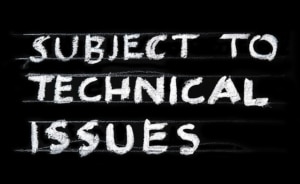Bad Deal or No Deal?
 One important reason you hire a broker to help you sell your business is the addition of a person to the transaction who is not emotionally tied to the business. We are there as your representative – to make sure you get the best deal possible at the time you are listing your business. And sometimes that advice will be to walk away from a transaction if we don’t think everything lines up in your interests.
One important reason you hire a broker to help you sell your business is the addition of a person to the transaction who is not emotionally tied to the business. We are there as your representative – to make sure you get the best deal possible at the time you are listing your business. And sometimes that advice will be to walk away from a transaction if we don’t think everything lines up in your interests.
Sometimes, no deal is better than a bad deal.
Bad Deals
There are many reasons why a deal may be a bad one, but there are two in particular that we see often that we try to deal with as soon as we can.
Price: this is before an offer is made, of course, but we try to make sure that the price we market the business for is not just in line with the financials and tax records of the company and the growth trajectory, but also with what the market is currently paying for businesses in your industry. That’s why it’s always so important to get a true valuation for your business. It’s objective, unemotional, and has nothing to do with what you “think you deserve” for your blood, sweat, and tears over the years.
But apart from a marketable price that we are confident will sell in a reasonable time, there also has to be consideration for the seller’s financial situation. For example, will the sale, after taxes, clear all the business debts of the seller? If not, would it make more sense to operate the business for some more time in order to be free and clear at closing?
Terms: this is after an offer to purchase and will usually be part of a package of negotiable deal points. Almost all successful transactions have a fairly balanced allocation of financial risk.
On the seller’s part, some financing may be in order, whether as part of SBA requirements or simply because of the buyer’s need. The buyer may also ask for some assets to be classified in such a way that will result in more taxation for the seller.
On the buyer’s part, some personal funds may be included as part of the purchase, and income statements scrutinized to make sure he/she is not overextending him/herself to buy the business.
As we’ve said often in these articles, successful transactions also usually leave both buyers and sellers feeling that they did sacrifice something they would have preferred. That’s why it’s called negotiation.
No Deal
It’s important to note that just because there’s not a deal doesn’t mean there isn’t a good reason for it.
On more than one occasion we have seen exceptional growth in financials for the current fiscal year and have advised our clients either not to list or to de-list their business so that we can get one more corporate tax return and thus boost the valuation of the company. Sometimes no deal is a strategic retreat rather than giving up.
But sometimes no deal happens because we’re not dealing with a motivated seller, or because the client doesn’t trust what we are telling him/her.
In our experience no deal is often better than a bad deal, because you can always try for a new transaction, trading on the lessons learned in the previous attempt, whereas a bad deal leaves you stuck with the consequences.
If you’ve got questions about pricing your business to sell, give us a call!

 Some time ago, we had a seller who had a wildly profitable business in medical equipment. He was one of the first to market, and as such had a great competitive advantage and enviable cash flow. In fact, when we first took on his business, he had several serious offers, one as high as $12M.
Some time ago, we had a seller who had a wildly profitable business in medical equipment. He was one of the first to market, and as such had a great competitive advantage and enviable cash flow. In fact, when we first took on his business, he had several serious offers, one as high as $12M. This is a continuing series of stories we want to share with our clients so they don’t make the same very costly mistakes.
This is a continuing series of stories we want to share with our clients so they don’t make the same very costly mistakes. This is a continuing series of stories we want to share with our clients so they don’t make the same very costly mistakes.
This is a continuing series of stories we want to share with our clients so they don’t make the same very costly mistakes. This is the first in a series of stories we want to share with our clients so they don’t make the same very costly mistakes.
This is the first in a series of stories we want to share with our clients so they don’t make the same very costly mistakes.
